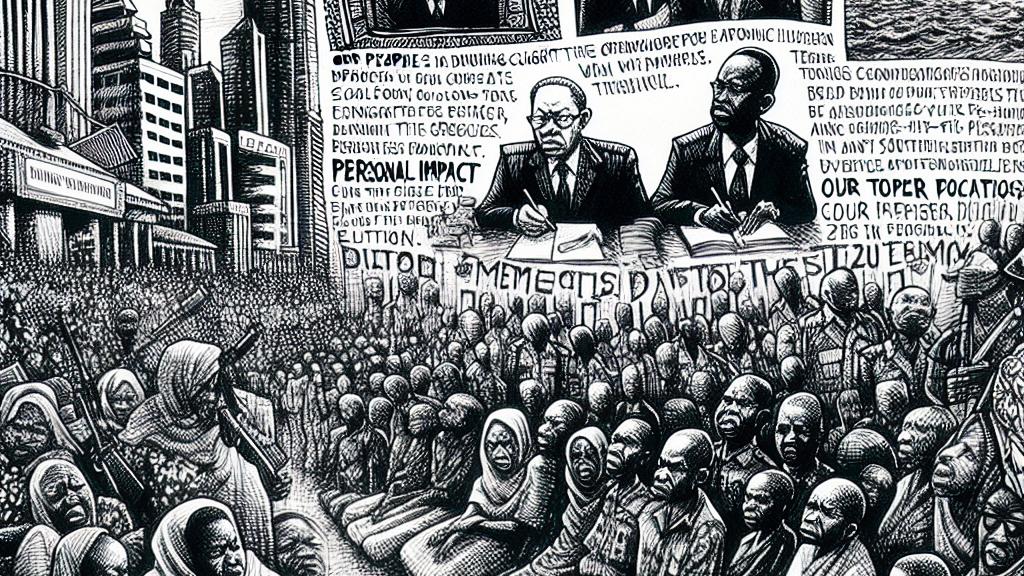African Leaders Call for Peace in DR Congo Fighting
Overview
- Leaders in Africa urgently demand a ceasefire amid rising violence and humanitarian crises.
- The M23 rebel group’s aggression reflects deeper struggles over resources and power.
- Global calls for diplomacy and humanitarian aid intensify as the situation worsens.

Urgent Call for Ceasefire
At a crucial summit in the bustling city of Dar es Salaam, Tanzania, leaders from East and Southern Africa issued a resounding call for an immediate and unconditional ceasefire in the Democratic Republic of Congo (DRC). This urgent plea arises from a dramatic escalation of violence, particularly attributed to the M23 rebel group, who have taken control of significant territories, including the strategic city of Goma. The humanitarian impact is staggering: nearly 3,000 deaths and massive displacement of civilians. As a regional leader poignantly stated, 'Our people are caught in the crossfire and deserve peace.' The overwhelming consensus is clear: we need diplomacy, not bullets.
The Struggle for Control
Central to this conflict is a bitter power struggle over the DRC's rich resources. The M23 rebels claim they are fighting for the rights of the ethnic Tutsi population, yet the DRC government perceives them as aggressors seeking to seize control of the region's immense mineral wealth, including vital resources like gold and coltan. For instance, Western nations rely heavily on these minerals for technology, which adds complexity to the situation. Recent clashes have not only devastated local communities but also ignited fears of a broader regional war that could engulf neighboring countries. As Kenyan President William Ruto aptly remarked during the summit, 'We must prioritize dialogue over destruction if we hope to forge a truly peaceful future.'
International Pressure for Peace
As the situation in the DRC continues to deteriorate, international pressure for a peaceful resolution is mounting. Nations like Malawi are reconsidering their military involvement, with plans to withdraw troops and redirect focus toward negotiation. Meanwhile, human rights organizations are advocating for sanctions against Rwanda, accused of backing the M23 rebels, highlighting how interconnected the dynamics are in this crisis. Moreover, humanitarian aid remains a crucial topic, as thousands suffer from the conflict’s impact. The looming question remains: 'Can we come together to prioritize peace over conflict?' Regional leaders emphasize that their collective actions today will determine the future of millions tomorrow.

Loading...